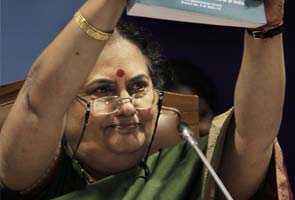06 aug 2011
 |
| Dr Sanjay Kumar Cardiac Cardiothoracic Heart Surgeon India |
New Delhi: The report of the government's auditor - the Comptroller and Auditor General - has been tabled in Parliament. Among those it faults for mismanagement are Delhi Chief Minister Sheila Dikshit and the Lieutenant Governor Tejinder Khanna. These are the highlights of the 800-page report:
- There are 33 audited entities; 33 chapters, 743 pages
- The unique challenge of monitoring activities of multiple agencies should have been met by entrusting stewardship to single point of accountability and authority which would also specify quality standards
- This stewardship should have been fully under government control. This was not followed
- May 2003 envisaged Organising Committee (OC) as government-owned registered society, with chairman of OC as a government appointee and President of Indian Olympic Association as Vice-Chairman. But it was set up in 2005 as non-government registered society with Indian Olympic Association President Suresh Kalmadi as Chair. This change was orchestrated through an updated bid in December 2003 which had no legal sanctity or relevance. It indicated changed structure which surfaced only in 2004
- Despite objections from then Sports Minister Sunil Dutt, Mr Kalmadi was named Chairman based on recommendations of the Prime Minister's Office (PMO) in December 2004
- A multiplicity of coordination committees were created, disbanded and reconstituted, leading to complete diffusion of accountability
- Government did not have realistic cost of hosting the Games. Unrealistic scope of the original bid led to revision of estimates at very short intervals right upto September 2010
- State of documentation in OC was so inadequate that we are unable to get assurance about authenticity of records
- Processing of sensitive contracts was allocated in arbitrary manner to officials who had no linkages to concerned functional area
- Award of contracts to ineligible vendors, inadequate time for bids, inexplicable delays in contract finalisation - this compromised transparency and economy
- Queen's Baton Relay - OC made payment to highly-suspect and little-known entities like AM Films and Cars. Payments were made in haste, with high amounts being given in cash
- There were delays of venue development at all stages; delays in tendering and in work execution and handover
- Constant deviations from original scope of work which led to delays and increased costs and extra payments. Delays in achieving milestones laid out in contract; penalties have still not been collected
- EMAAR was not qualified to build apartments and Athletes Village. Serious lapses in quality of construction. Service life of residential buildings is not more than 20 years without serious repair
- Streetscaping and beautification project was ill-conceived without broad over-arching vision and perspective of how this would impact urban design. Project was consultant-driven with consultants selected in arbitrary and non-transparent fashion without any budget estimates. Rs. 4.8 crore per km was paid - which was exorbitant. More than 100 crores were wasted. We acknowledge improved roads because of street-lighting. But decision to use imported street lights on certain roads was taken with consent of Chief Minister - waste of 30 crores. Price of imported lights was much higher than fair price
- Road signs - restrictive tendering conditions were imported to benefit two major sheet manufacturers
- Reviewed 7 key roads and flyovers. Irregularities in how projects were awarded. Correction fluid was used in some tenders
- Overhaul of Connaught Place not completed in time for Games
- Host city contract meant Government had to underwrite shortfall between revenue and expenditure. Document provided for big role to be played by government. But after Games were allotted, there was a turnaround. Role and control of government was progressively reduced but at the same time, financial commitments of government were left unaffected. This was done via updated bid submitted by IOA to Ministry of Sports in December 2004 - had no legal sanctity. But it meant OC was now set up as non-government society. This updated bid also took away references of government nominee as Head of OC. This was followed by letter from Mr Kalmadi to PM - he said he should be made Chairperson of OC, while Minister of Sports would be chairperson of Steering Committee. In 2004, Kalmadi elected by IOA as Chair of OC
- November 2004 - Sunil Dutt wrote to Arjun Singh, who headed the Group of Ministers (GoM) overseeing the Games, saying that updated bid made changes that were unauthorised
- December 2004 - PMO communication endorsed Kalmadi as Chairman of OC. This document also said the arrangement would be considered at meeting in January 2005; GoM went with Mr Kalmadi as head of OC. The OC was registered as society in February 2005. The rules listed Kalmadi as Chairman by name, and not by virtue of his designation as President of IOA
- The OC had a 15-member board and had only two nominees each from the Government of India and the Delhi government
- 2007 - Ministry of Sports highlighted lack of authority of Government of India representatives and absence of government control. Then Sports Minister Mani Shankar Aiyar wrote a series of letters to PM's office highlighting lack of control by Ministry of Sports over OC
- OC was funded entirely by government but functioned without accountability
No comments:
Post a Comment